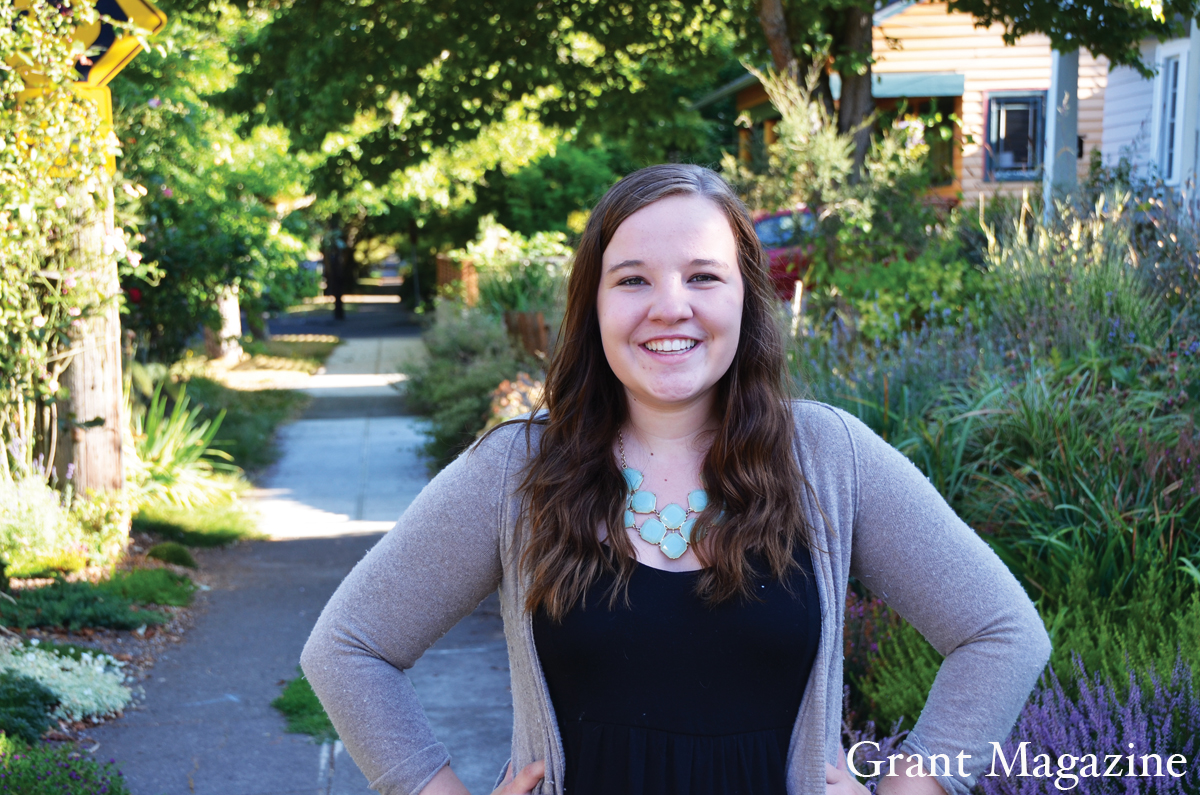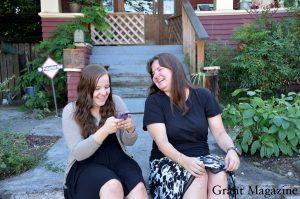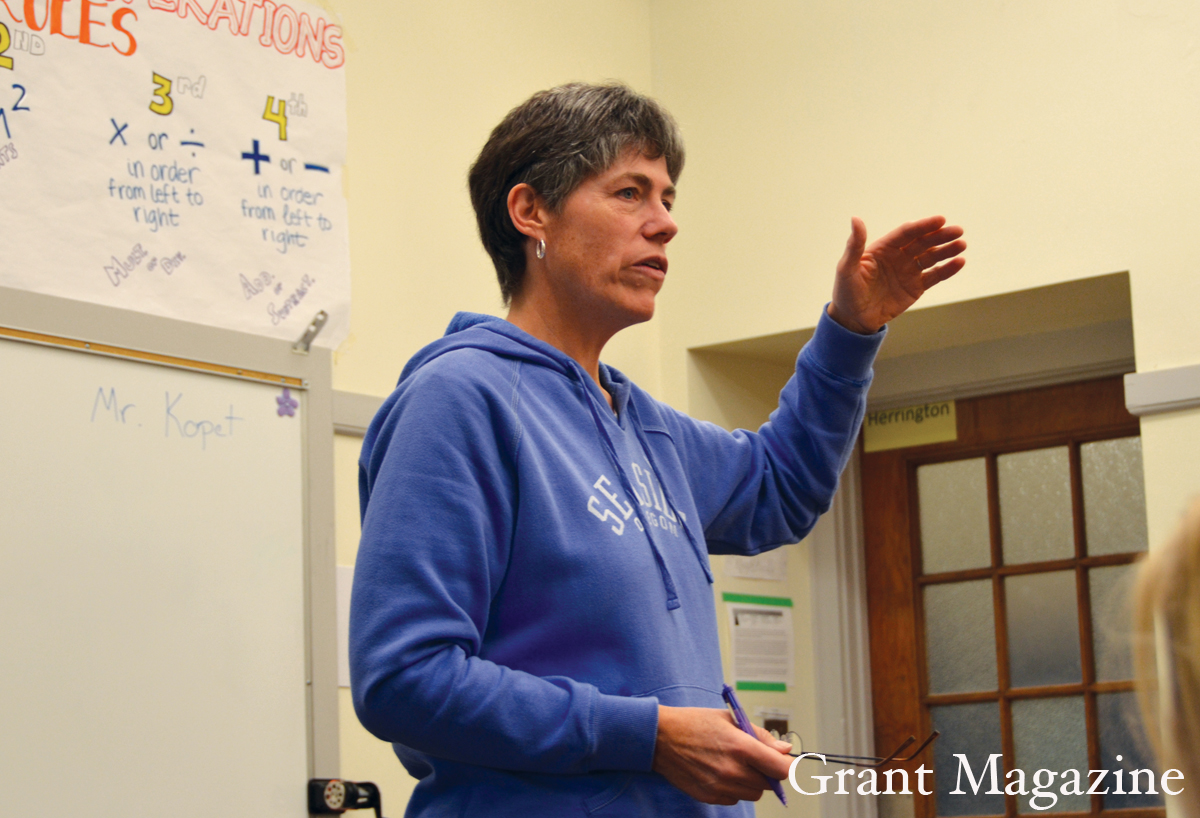Beads of sweat pooled on Riley McDorman’s forehead and goose bumps rose on her skin. McDorman peered around the room. Her breathing was out of control as she struggled to make sense of what was happening.
Before she could get help or stop the attack, she blacked out and smacked her head on a desk. Coming to, she hoped for relief only to black out and hit the desk again. McDorman had no idea she was experiencing a seizure that would change her life forever.
A senior now, McDorman has struggled with epilepsy all four years of high school. She must constantly be aware of her body in case another seizure strikes.
“I was not going to let this be a defining point to me in a negative way.” -Riley McDorman
In a healthy brain, electrical signals travel through passages and tell the body what to do. In a brain suffering from a seizure, the electric signals get mixed up and don’t travel through the passages correctly. Epilepsy is the pattern of having multiple seizures over time.
The seizures can leave a victim jerking on the floor. In extreme cases – called Grand Mal seizures – it can cause someone to pass out and shake violently. McDorman’s seizures are classified as partial complex, which means they are internal and cannot be easily detected unless you know the patient well.
Jenna Schofer, McDorman’s mom, says it’s been difficult. “The challenge is that her epilepsy is non-convulsive so it doesn’t manifest in people like obvious epilepsy,” she says.
Almost anything can trigger a seizure. For many people, including McDorman, a big trigger is lack of sleep, and teenagers are notorious for not getting enough of it. If she stays up late on a school night, she increases the chances of having a seizure the next day. Some students pull all-nighters studying while others spend their nights at parties. Both are too risky for McDorman. “I think it’s better not to mess with that,” she says.
People suffering with epilepsy live every day in the dark; they don’t know when they will have a seizure or how extreme it will be. There is always a chance that McDorman will simply drop dead. She is fully aware of the risks of her condition. “I don’t have leeway to not be responsible,” she says.
Schofer remembers her daughter as a child. Curious and independent, McDorman did things her own way, her mom recalls. Once, in preschool, she pulled a fire alarm that made loud noises and set off an army of hissing sprinklers.
When McDorman was two years old, her father left the family to pursue his own separate path in life. He has only resurfaced a few times since then. He moved to Portland when she turned 11, but she explains that “he has always done his own thing.”
She moved with her mom to Portland in 2008 and attended Beverly Cleary at Fernwood, where her life would change unexpectedly a few years later.
Her last name is the most prominent aspect of her dad in her life. She plans to change it to Bruner, her mom’s maiden name, when she turns 18.
“We’ve always been fighters, the two of us,” Schofer says as she reflects on their motto: “We make the best of what happens to us.”
McDorman remembers the day things took a turn. A freshman at Grant, she was at Fernwood as a teacher’s assistant. Several kids sat chattering when one student opened a Gatorade. The smell from the bottle overtook her. She grew cold and things got shaky. She fought her eyelids as they grew heavy. Then her forehead collided with the desk and the room went black.
She regained consciousness and realized no one had noticed her pass out. She tried to get out of her chair and get help but her vision grew blurry. McDorman fell and hit her head on the desk again. When she came to, she knew something was obviously wrong, but she wasn’t sure she could make it out of the room. She stumbled to the door, her vision still blurry, somehow making it to the office before her body gave out. She collapsed on the office floor, hitting her head on the way down.
Teachers rushed over and tried to get a response as she lay on the floor. One spotted her iPhone and tried to crack her password so she could phone a parent. Her best friend, Mykaela Brock, was a teacher’s assistant as well and helped contact McDorman’s stepdad.
She was taken by family to the emergency room. When she finally returned home, she was groggy and exhausted like she had run a marathon. She wondered what was wrong with her. Weeks rolled by where she had up to 12 seizures a day with no answers from the doctors. “They didn’t know if it was a brain tumor,” says McDorman. “I mean, it was weeks of ‘You can’t leave the house. You can’t do anything active.’”
Once she was diagnosed, there was fear and questions. How would her future be affected? Could she finish high school? Would she ever be independent again?
Schofer was terrified for her daughter’s life, but she knew she had to be strong as McDorman looked to her for guidance. “The role as a parent was challenging because I couldn’t let her see my fear or my worry because I didn’t want her to be afraid or worried,” Schofer says.
There is no way of knowing how long McDorman has had epilepsy. Neither she nor her mother ever suspected neurological issues, especially since none of their relatives had problems. “It’s probable that family members had it but it wasn’t diagnosed,” her mom says.
Looking back, McDorman and her doctor pinpointed key events in her life that may have been warning signs. One of them came when she developed headaches after falling off a horse at a summer camp.
Schofer remembers her daughter was almost always sick. A common indicator of epilepsy is a weakened immune system because after experiencing a seizure your body has little energy to fight off sickness. She also had staph infections.
For months, the seizures continued. “Sometimes they’ll be a couple minutes and sometimes they’ll last a couple hours. I had them consistently all day,” she remembers.
In and out of medical offices, life was a blur of needles, CAT scans and trial treatments. Doctors wondered if she’d had an allergic reaction and even suggested that she could die at any time. “That was a major question. Like every person was very concerned that she would just drop dead,” says Schofer.
McDorman’s independence was taken away and she was under constant watch. “I had to pretty much be babysat at fifteen,” McDorman recalls. “It was a really hard point in my life but I wasn’t going to let it change my life forever, in a bad way.”
Besides her immediate family, she had a lot of support from her church congregation. While she was on bed rest, friends from church brought dinner and volunteered to take her out to lunch. “It helped me stay really positive, and remind me how blessed I was, even if I was having a hard time,” she says.
McDorman has been through struggles most people cannot imagine, but Schofer treats her like any other teenager. And she knows her daughter has learned fast about responsibility. “She didn’t have to deal with peer pressure because she could say ‘I can’t,’” explains her mom.
McDorman wants to go to a college on the East Coast and she plans to study law. She’s looking at Emmanuel College, Boston University, Ithaca College and Utica College for next year. These days, she’s on the Grant Constitution Team and spends weekends working with her teammates.
Over the summer she spent most of her time volunteering for Senator Jeff Merkley, D-Oregon. She also helped out at the Make-a-Wish Foundation, where she took part in granting sick children’s wishes. She often constructs scrapbooks for the children. “You really got to see how happy they were even in such hard circumstances,” McDorman says.
McDorman personally feels she has become grateful for the small things in life. “I have a different outlook on, like, what a problem is,” she says, explaining how petty some teenage complaints sound to her. Clothes and parties seem trivial when compared to the adversity she’s faced. ♦




































